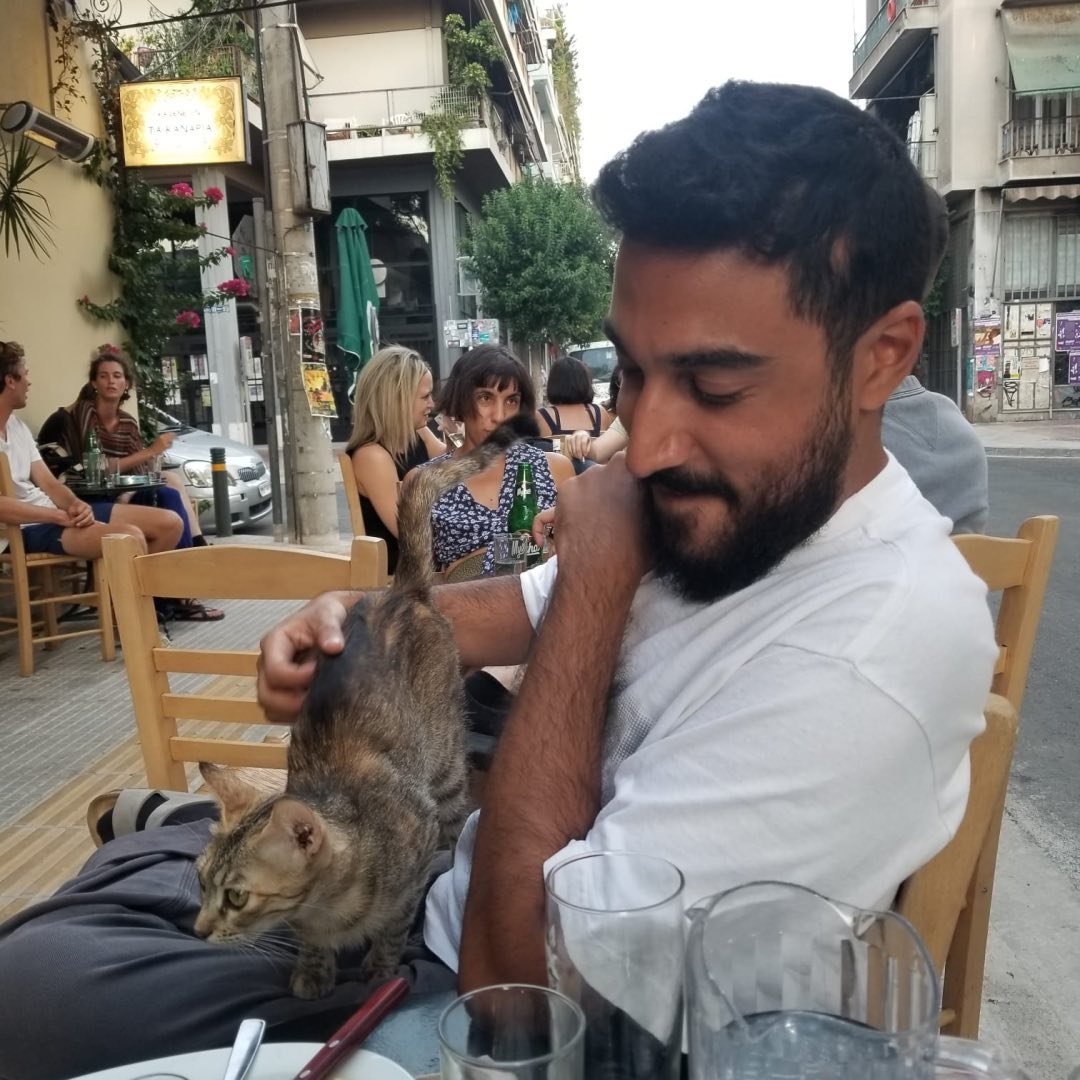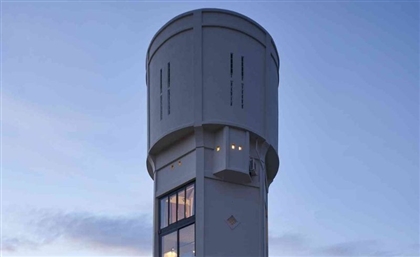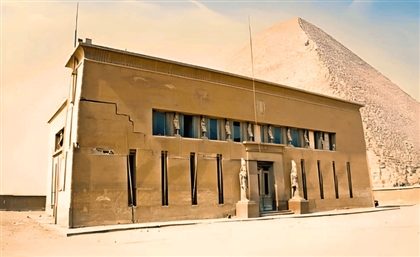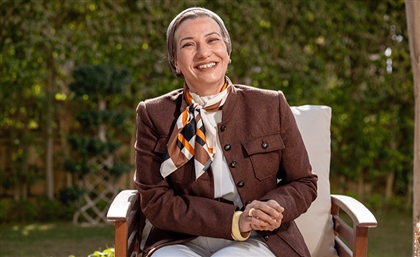Nesta Opens Up About Beirut’s Underground & His Farm-to-Table Dream
Lebanese DJ Nesta has been reshaping Beirut's music scene with eclectic sounds, secret parties, and now gourmet cuisine.
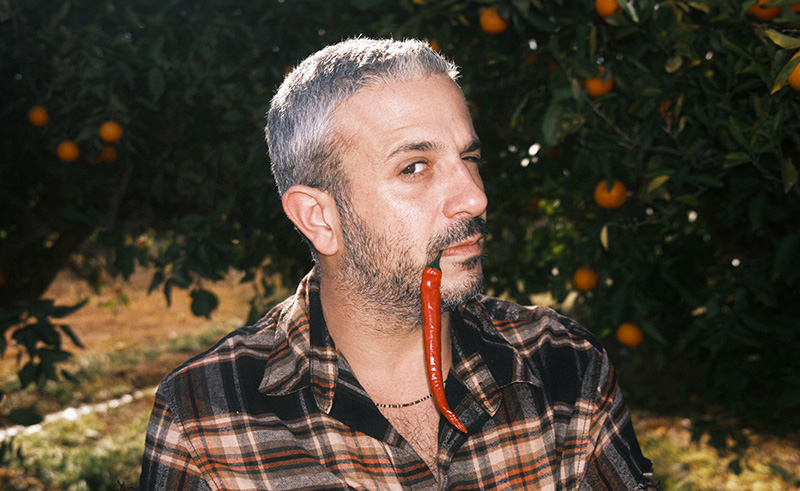
When looking at Middle East's electronic music over the past decade, some key figures and artists stand out in each country owing to their extended careers as DJs or iconic events as promoters. In Lebanon, a country that led the regional clubbing industry and continues to do so despite socio-political instability, Nabih Esta, aka Nesta, is one such pioneer. A DJ and producer deeply ingrained in Beirut's vibrant nightlife, Nesta has built a reputation for blending eclectic sounds across genres, curating events that constantly push and redefine what the party experience is and could be.
Nesta’s journey began in the early days of Lebanon's electronic underground, where his versatility quickly garnered attention and led to residencies at some of the region's most notable venues. He later founded Fantôme de Nuit, an influential platform for regional and international talent as a record label and party series.
Nesta's dedication to music is matched only by his passion for culinary arts. He always brought the same creativity and flair from the studio into the kitchen, integrating his love for food with his signature events and pop-ups. With upcoming music projects, tours across the region and beyond, and a new farm-to-table venture, Nesta is pushing the boundaries of artistic expression. In this interview, he reflects on his journey, inspirations, and the link between his passions for music and cooking.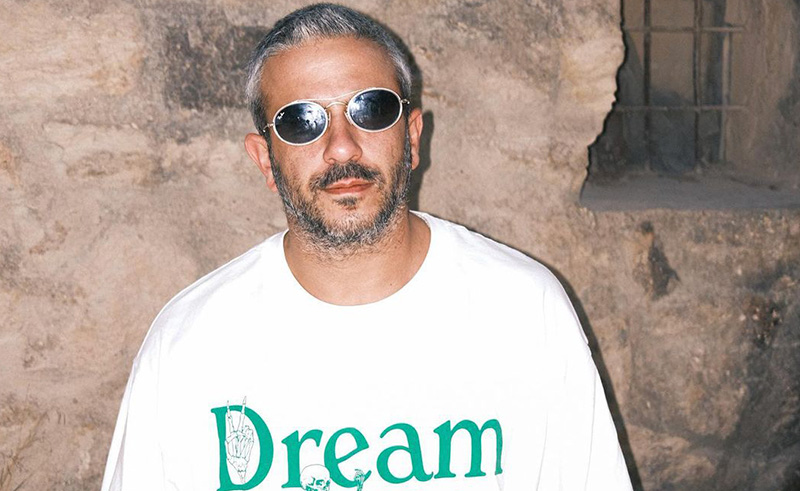 Q: Tell us about your upbringing and your first brush with electronic music. Are there any particular artists or labels that initially pulled you in or inspired you?
Q: Tell us about your upbringing and your first brush with electronic music. Are there any particular artists or labels that initially pulled you in or inspired you?
NESTA: I was fortunate to grow up surrounded by my three brothers, who had a deep love for music, from old-school hip-hop and classical to progressive rock, house, and trance. My first cassettes were ‘Doggystyle’ by Snoop Dogg and ‘The Fat of the Land’ by The Prodigy, gifts from my brother when I turned 10. I was also heavily influenced by artists like Tangerine Dream, Kraftwerk and John Digweed, which shaped my early love for electronic music.
Q: How did Beirut's burgeoning music scene shape your style and love for music when you first started? And how did having several residencies early in your career serve you as a DJ?
NESTA: Like many Lebanese DJs, I was heavily influenced by B018. At that time, it had Fady Ferraye and Ziad Ghosn as residents, and later, Gunther & Stamina. It was the progressive house and breaks era. I was properly introduced to Chicago house music when I first heard people like Baloo, G! and Special Kase play.
At age 20, I landed a residency at Basement, which ironically had a 21+ door policy. In 2008, I also started throwing parties with my former partner and good friend Ronin to express ourselves differently and have a playful platform.
Soon after, I co-founded Uberhaus/The Garten in 2012, which broke into the regional clubbing scene, helping shape my style and approach to music. I also worked with NRJ and MixFM at the time. This exposure to different crowds shaped my versatility as a DJ. I always had to adapt and deliver - whether for a 2,500-capacity room or more intimate after hours.
Q: In 2014/2015, you launched Fantôme de Nuit as a label. What was your vision, and what inspired you to start it?
Nesta: After returning from London in 2013, I wanted a platform to express myself and have creative freedom. There weren't many labels then, and there are still few today. I didn't really think about it much or have any particular intentions. Still, Fantôme de Nuit organically emerged to gather like-minded artists and friends under one outlet and connect regional talent through collaborations and remixes. We intended to create a space that linked our artistic vision with a compatible sound direction. Q: Your Fantôme de Nuit parties became known for their unique locations and setups. What were you trying to bring to the scene with your pop-up concept?
Q: Your Fantôme de Nuit parties became known for their unique locations and setups. What were you trying to bring to the scene with your pop-up concept?
Nesta: At the time, parties were becoming too mainstream, with the same headliners booked everywhere, over and over again. So, I decided to hold pop-up events across Beirut in exciting locations that provided a more intimate experience. Our parties are unique because we only host up to three to five a year. I wanted a setting that felt more like a private gathering, where guests could dance and enjoy great food and quality cocktails without being overwhelmed by security or restrictions. We also showcase and collaborate with many international brands such as Yoyaku, ReSolute, tINI and the Gang, Half Baked, The Mudd Show, etcetera, while always curating a lineup with a mix of locals, regionals and internationals merging everyone together.
Q: The FDN parties became known for more than excellent curation and an intimate atmosphere. Tell us about the culinary aspect of those events. Are there any memorable events or editions that still stick out for you?
Nesta: I was always a big foodie and amateur chef, something I leaned into heavily as I got older. I was fed up with parties that only served to party; I also wanted to make excellent food at those parties. So, next time you come to one of our parties, you might see me behind a taco stand preparing mouth-watering tacos before my set. The most memorable sessions for me and many people will always be the Villa B intimate beach parties and the mid-August parties we throw in the mountains every year. People wait for those parties and plan their summer around them.
Q: You're more than an amateur chef at this point, as we can see from looking at some of the dishes you post online. How did this culinary side of you come to be?
Nesta: It all goes back to how I was raised. My father is a great cook who loved making all these weird, authentic, down-to-earth dishes. My mom was also a fantastic chef heavily inspired by Paul Bocuse, so she was a refined version of my father.
I remember always travelling to Paris with my parents when I was young; that influenced me the most food-wise because French cuisine is by far the best, most complex and most sophisticated cuisine ever. I had the chance to eat at the best restaurants at an early age, which developed my palate the most. I even went to culinary school at Alain Ducasse in Paris for fun but never worked as a chef.
Q: It's becoming more common for musicians and DJs to share their love for the culinary arts and incorporate aspects of it into their practice. What is the common thread here?
Nesta: I don't know the link, but most artists and DJs who make and play good music make fantastic food - most of them. Both subjects are very delicate and detailed. I also guess that it is this feeling of disconnecting and creating while completely emerging in your task, whether in your studio, behind the decks, or in the oven - it just feels euphoric.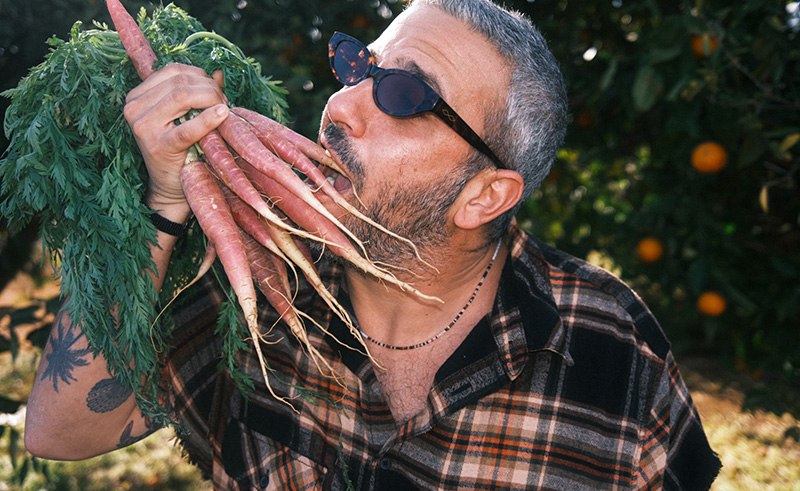 Q: So what's your favourite dish to make/enjoy and record to play at the moment?
Q: So what's your favourite dish to make/enjoy and record to play at the moment?
Nesta: It's tough for me to name one dish. I love Mediterranean flavours because of their roots and freshness, Asian cuisine for the explosion of tastes, and French Gastronomy because of the perfection of the art. I enjoy working with beef cheeks in the French style so much, as well as seafood like mussels and clams with white wine and parsley, as much as I like making beef Phở soup and bone broths! In terms of records, I've been playing a lot of this reissue of an Eric Spire record called ‘Big Brother’ (1994 warehouse dub), which also carries special meaning to me since my big brother introduced me to these kinds of heavy house/tech house tracks with a little touch of electro and a hypnotic feel.
Q: What are some of the ventures or projects in music and the kitchen that you have lined up?
Nesta: My wife and I are working on a farm project where we will eventually set up a farm-to-table concept. It's something I've always dreamed of, combining my love for animals, nature, and good company. I'm also reactivating my label's releases with a two-part album ‘Food for Soul’ distributed by Yoyaku and illustrated by my best friend and great artist Alexandra Bitar, with other releases on various labels in Hamburg with We R The Aliens, New York with Love On Cropsey Records, and London with Untold Stories. I'm also considering launching a new label focused solely on edits, as I enjoy sampling and reimagining existing music.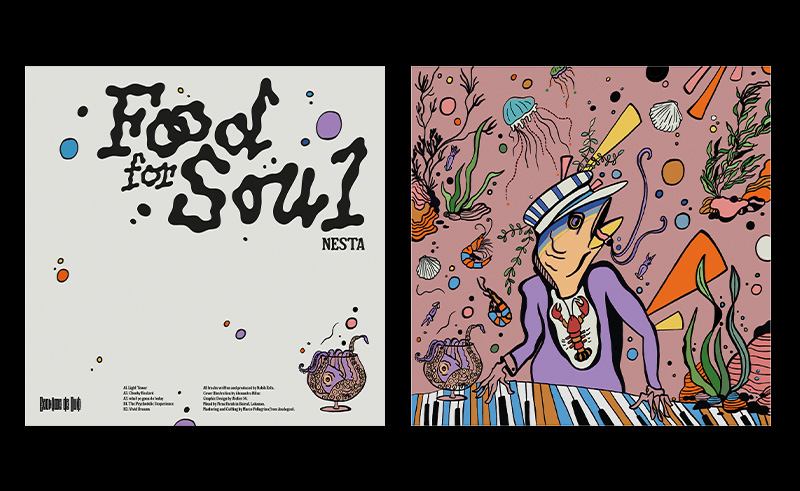 Q: How do you stay inspired and productive with so many cool projects in the works?
Q: How do you stay inspired and productive with so many cool projects in the works?
I have been trying to balance my life as much as possible. I try to curb negativity by focusing a lot on my art and working day and night to craft it. I also try to make the music that represents me the most.
I find my inspiration by listening to and digging for new music daily, whether jazz, electronic, hip-hop or rock. I surround myself with like-minded friends and amazing artists who inspire me every day, and of course, all the travels I've been doing play a huge role in my inspiration for making music and living a more disciplined life.
Do your thing at your own pace and rhythm, be yourself, and never compare yourself to anyone else. Also, you should know when to retract yourself, when to pause, when to yield, and most importantly, when to enjoy: greediness ruins everything.
- Previous Article Italian-Palestinian Duo No Input Debuts Eponymous Electro EP
- Next Article MOSHTRQ & No Stone to Showcase at Cairo Jazz Club August 15th







